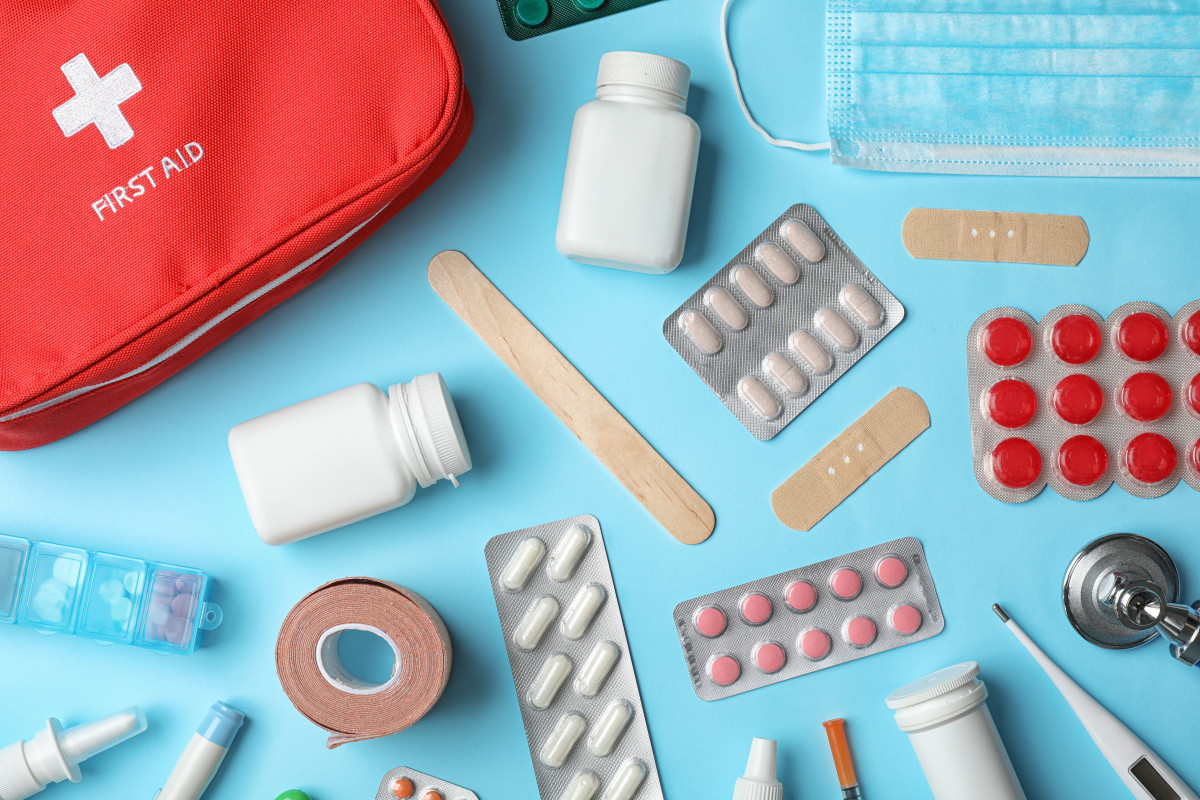Practical tips travel
When you travel, whether to the Baltic Sea, the Alps or abroad, a first-aid kit should always be on board. There is nothing you wish for less than that one of your loved ones falls ill, but unfortunately no one is immune to this. Read here what absolutely belongs in the first-aid kit when you go on holiday with your children.
Traveling with children – what absolutely belongs in the first-aid kit
My child is sick – what now?
If the worst comes to the worst, it is advisable to always have something with you for first aid or minor injuries. In the case of more serious or longer-lasting illnesses, a doctor should of course always be consulted.
Basically, when traveling abroad, it is important to take out international health insurance for the whole family in advance. Before you go on vacation, all family members should visit the doctor again and have their vaccinations checked. Carry the vaccination card with you when you go to your holiday destination. This is particularly important when traveling abroad, where vaccinations that are not necessary in Germany should be available.
Equipment for emergencies: What belongs in the first-aid kit?
- Dressing material (plasters, bandages)
- Sunscreen and ointments for sunburn (better to buy at home, as they are usually only available at overpriced prices in the holiday resorts)
- Insect sprays to prevent mosquito bites
- Tweezers for removing ticks or other small animals
- Injury disinfectant
- Wound cream, wound spray, cooling ointments for bruises
- Fever thermometer, suppositories or fever syrup
- Nasal spray/drops: cooking or sea salt nose drops moisten the mucous membranes and thus prevent infections. When traveling by plane, decongestant nose drops can prevent earaches that can result from the pressure equalization during take-off and landing.
- Cough Syrup (ACC or Tusamac)
- anti-vomiting medicine
- Means for diarrhea: Electrolyte powder (Oralpädon) and charcoal tablets
- It is important for allergy sufferers to carry all necessary medicines with them. Emergency bags should also be in your hand luggage.
Note the permitted quantities of medicines you can take with you when you travel abroad. The best way to inquire about the permitted import quantities is to contact the municipalities, which will also mediate, or contact customs directly. If you have any questions about the choice of medication, paediatricians will be happy to help and advise you.
